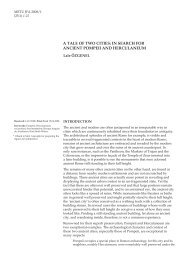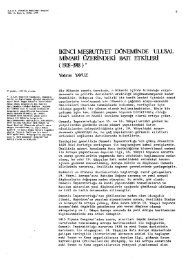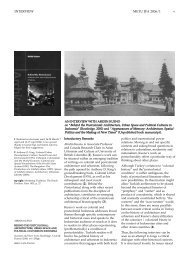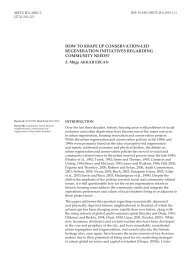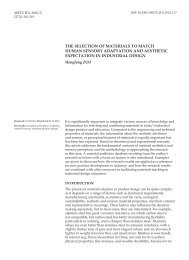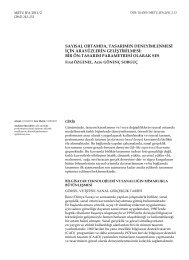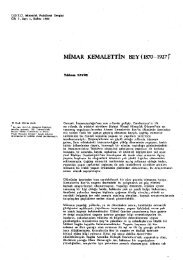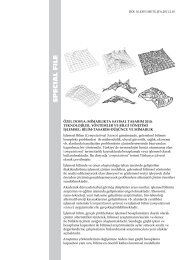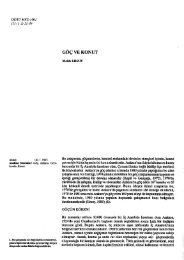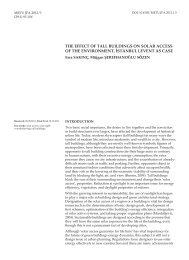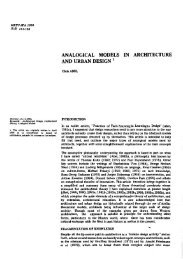kentsel mekanın üretiminde raslantısallık sorunu üzerine
kentsel mekanın üretiminde raslantısallık sorunu üzerine
kentsel mekanın üretiminde raslantısallık sorunu üzerine
Create successful ePaper yourself
Turn your PDF publications into a flip-book with our unique Google optimized e-Paper software.
100 ODTÜ MFD 1998 H. ÇAĞATAY KESKİNOK<br />
Neither the structural aspects of the spatial development, nor the transformative<br />
capacity of human action can be neglected. However this transformative capacity<br />
depends upon special circumstances. The 'relationship of reproduction or nonreproduction'<br />
signifies the role of strategic decision-making among the structurally<br />
limited range of alternatives. The contingency of outcomes depends upon<br />
the selections made among the structurally possible alternatives, İn cases of<br />
existence or non-existence of the mediation from the struggling social forces<br />
within or outside the state apparatus or both.<br />
At this point the very question is how to locate the strategic role of decisionmaking<br />
processes within the determinations between structures and the agents.<br />
In this effort, non-contingent aspects should be distinguished. Otherwise, the<br />
framework will lead us to a pluralistic conception of the production of space,<br />
conceptualizing the urban space as a sum of individual activities, preferences and<br />
choices. At least, the relations of private ownership and possession prevailing on<br />
and defining urban land are not contingent. For instance, the contradiction<br />
between capitalist interests and landed interests is a source of contingency in<br />
public decision-making processes. There are limits of contingency resulting from<br />
reproductive or non-reproductive effects of the selection mechanisms.<br />
For us, economic needs and socio-spatial phenomena are not related to each<br />
other in a one-to-one correspondance, in accordance with any 'a priori functional<br />
necessity'. To defeat this functionalism, it is necessary to distinguish the functional<br />
and dysfunctional aspects and elements of this process which has an<br />
uneven character.<br />
There always exist differences and deviations between functionalities, intentions<br />
and the consequences, between projects and actual world because of:<br />
• the uneven development of capitalism and the resulting uneven organization<br />
of capitalist production,<br />
• the fixity of existing spatial structures and the resulting urban problems,<br />
• the selection mechanisms affecting the state's activity in space,<br />
• the class struggle mediating into directly or indirectly the (re)production of<br />
space, not only in economic and political terms but also in ideological terms<br />
as defining a meaning for urban space,<br />
• the articulation of the social relations of capitalist mode of production with<br />
that of descending non-capitalist mode of production, particularly with<br />
respect to mode of utilization, creation and reproduction of space.



